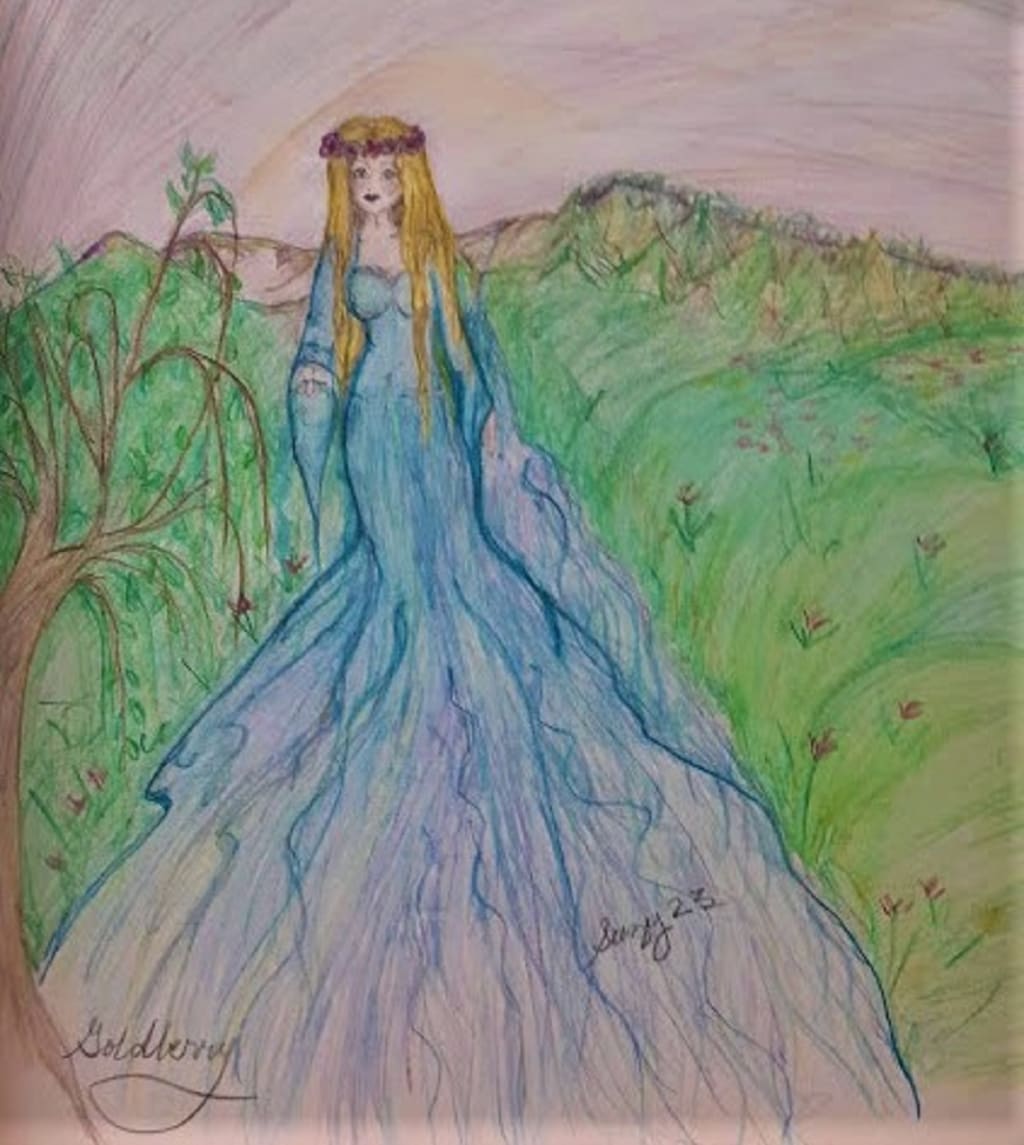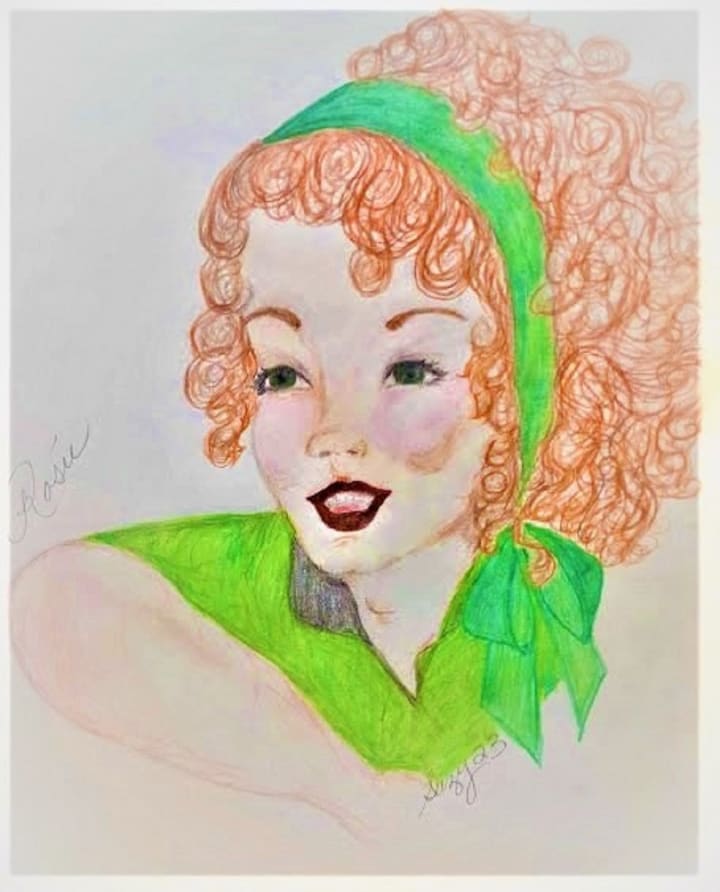The Women of "Lord of the Rings"
Personality and Purpose in the Main Female Characters in Tolkien's Novels

It has been noted that there are few women in the Lord of the Rings trilogy. In fact, many people only think of Arwen, Éowyn, Galadriel, and sometimes Rosie when considering this topic. This is especially true if one is a fan of the Peter Jackson films but has not read the books. Yet, even fans of the books, who have read them multiple times, often forget about the other women, who are minor or secondary characters.
These women are Lobelia Sackville-Baggins (Bilbo's cousin's wife), Ioreth (a healer in Minas Tirith), Mrs. Maggot (Farmer Maggot's wife), Gilraen (Aragorn's mother), Mrs. Cotton (Rosie Cotton's mother), and the Entwives (who became separated from the Ents ages ago and are "lost"). Feminist scholars and other interested writers have explored these women and come up with ideas about who or what they represented for Tolkien and why they behave the way they do.
I do not intend to look further into these particular women in this story; rather, I will be taking a closer look at the main female characters who appeared in both the books and the films, as well as one mysterious character who appears in the book but is left out of the films. The female characters I will be addressing, in alphabetical order, are Arwen, Éowyn, Galadriel, Goldberry, and Rosie Cotton.
Arwen
Arwen, also known as Undómiel or Morningstar, was the half-Elven daughter of Elrond, Lord of Rivendell. Elrond himself is half-Elven. Arwen's mother was Celebrían the Elf, daughter of Celeborn and Galadriel. Arwen lived either in Lothlórien or Rivendell, at different times of her life.
According to the lore, Arwen was more than 2700 years old when she met the love of her life, Aragorn, who had been fostered by her father when his own was killed hunting orcs when Aragorn was two. When Arwen and Aragorn met, Aragorn was twenty years old. Arwen had been living with her grandparents in Lothlórien during the time Aragorn was growing up in Rivendell.
Aragorn fell in love upon meeting, but it wasn't until thirty years later that they met again in Lothlórien and committed themselves to one another. In order for them to be together, Arwen had to give up her immortality and Aragorn had to come into his own as the king of Arnor and Gondor.
Arwen in the book was not the one who saved Frodo from the Black Riders at Bruinen. In the book, the elf Glorfindel let Frodo ride his horse and Elrond created the flood. The literary Arwen was less important to the story of the destruction of the ring. However, the love she and Aragorn have made her extremely important to Aragorn's success in attaining his throne.
For me, this love story is one in which Arwen is the strongest, for she is the one who must renounce her life as an immortal in order to wed her beloved. Though she was not the first to make this choice, she was the last. Arwen and Aragorn represent a final merging of Elf and human. As the books ended and the Elves crossed into the West and into history, it was Arwen who became the last remnant of Elven beauty in Middle Earth.
Éowyn
Éowyn was a shieldmaiden of Rohan, the land ruled by her uncle, King Theoden. Éowyn and her brother Éomer were raised by King Theoden when their parents were killed. Their father was killed in war and their mother died of an illness when they were quite young. Éowyn is a reluctant caregiver of her uncle. Although she loved and cared for him, she feels trapped by the expectation that she would stay home when she was actually trained to fight. She yearned to take her skills onto the battlefield.
By the time the Fellowship arrived, Éowyn feared her uncle's imminent death. She did not know that his ailments and rapid decline were the result of Saruman's negative influence through Gríma, also known as Wormtongue, who had been serving as her uncle's closest advisor.
Some people may think that Éowyn is more of a "hausfrau" in spite of being a relative of the king. Éowyn was a strong person physically, mentally, and morally. She stayed close to her uncle even though in doing so she was harassed by Wormtongue. I can easily imagine her flinching as he approached her and stifling a gag reflex when he spoke to her of marriage.
I can identify with Éowyn's unrequited love for Aragorn. I don't think it's just that she had been stuck at home with her uncle and the nasty little Wormtongue. As a Ranger, Strider, as Aragorn was known to most folk in Middle Earth before he took his throne, was a mysterious man whose royal lineage showed in his carriage, though most don't recognize him as such for most of his journey. He was a natural leader in spite of being a bit of a loner, and Éowyn responded to his lean strength of both body and mind. Although he was a man separated from his betrothed for some time, Aragorn was honest with Éowyn. Her heart was broken, but she respected his honesty.
Éowyn was a woman who "rolled with the punches". According to a letter written by Tolkien, she was "…capable of great military gallantry at a crisis." It was part of her internal strength that she was able to obey her uncle's wishes even when they went against her own. I believe that part of Éowyn's reasoning for staying close to her uncle was in her pride of place as her uncle's niece. This was somewhat reflected in the following quote from The Return of the King:
"And she answered: 'All your words are but to say: you are a woman, and your part is in the house. But when the men have died in battle and honor, you leave to be burned in the house, for the men will need it no more. But I am of the House of Eorl and not a serving-woman. I can ride and wield blade, and I do not fear either pain or death.'"
She felt love for her uncle and a duty to her people. Her strength was recognized by others, who recommended she be the one to lead her people to safety. This she did, but in the end, it is she who won the battle at Pelenor, for Witch-King of Angmar, Lord of the Nazgûl, who "cannot be killed by man," was easily killed by a woman.
But of course, Éowyn was no ordinary woman. She was a woman who would speak what she wanted, was not afraid to assertively tell a man she loved him. She was one who would change her mind when she had new information. When she came close to death, she realized that she was a healer. As her uncle's caregiver when he was sick, this was not too far of a swing. Her desire to be shieldmaiden had been fulfilled and coming in contact with the Witch-King had nearly killed her.
Meeting Faramir shifted her infatuation with Aragorn to a more powerful, true love. Some feminist writers have written that Éowyn's shift from wanting to fight to wanting to heal made her a sort of "sell out", slipping back into the traditional role of homemaker and caregiver.
However, I don't necessarily agree. First, I don't see a shift here at all, since she cared for her uncle when he was ill. She may have felt lonely and powerless during that time period, but it was her strength and her caring that brought her through it. Also, a strong, independent woman can be happily married to an independent man.
Finally, as a person who had found her call as a healer, Éowyn could no longer have a taste for killing, if that's even what she had previously. The willingness - or even eagerness - to do what is necessary to protect what one values does not necessarily mean one relishes the task. For the one who cares for the sick and injured with true compassion and caring cannot also be the one who inflicts the injury.
Galadriel
From the time I first read the trilogy, I have been enamored by Galadriel. As I understood her at the beginning, she was both beautiful and powerful. She was also very wise. In my imagination, Galadriel was an ethereal beauty, tall and willowy with long fair hair. I saw her as kind and caring, proud and fair.
I think she was all of these things and more. Her wisdom is evident in her refusal of the One Ring when Frodo tries to gift it to her. Her strength and power were both the reason he thought she would be a good custodian of the ring and the reason she was able to refuse. She had her own ring, Nenya, one of the three Rings of Power given to the Elves. She was fully aware of the dangers posed by the rings, most of all the One.
Galadriel was known as the Lady of Lothlórien, where she and her husband Celeborn ruled and guided the Galadhrim. These Elves lived in and among the great Mallorn trees. These trees had smooth, silver-grey bark and green and silver trees with golden flowers. The tops of the trees were comprised of wide-spread branches upon which the Elves built their homes. The descriptions of these woods always made me feel a sense of bright coziness.
When Frodo and the Fellowship arrived in Lórien, Galadriel made them welcome. She sensed what each of the party needed and gifted them with items that would come in handy later in their quest. Seeing into their hearts and judging them fairly, as was her wont, Galadriel provided not only these gifts, but also words of compassion and wisdom.
Galadriel's story began hundreds of years prior to the Third Age and the War of the Ring. According to The Silmarillion, Galadriel was a leader in the rebellion and escape from Valinor, her birthplace. The newest iteration of Tolkien fiction television on Amazon Prime gives a nod to this warrior-princess part of Galadriel's life. The fairest of all the Elves is also one of the most courageous and powerful.
I am still a bit enamored with her.
Goldberry
Goldberry was a mysterious character. She was called the "River-woman's Daughter" and was married to Tom Bombadil, who was one of the most enigmatic of all the characters in Tolkien's Middle Earth. They lived together in a house in the oldest part of the forest where Frodo, Sam, Merry, and Pippin met them in The Fellowship of the Ring. She was described as an ethereal and beautiful woman with blonde hair. Tom Bombadil told the young hobbits that he found Goldberry at the River Withywindle. Tolkien scholars have varying opinions about both Goldberry and her husband, which can be easily found in an internet search.
Personally, I believe that Goldberry was an immortal - or close to immortal - water spirit, like an Undine, Nixie, or Naiad, but I see her as more than just some random water sprite. I think that both Goldberry and Tom Bombadil were Elemental Spirits of water and earth, who had lived in the old forest of Middle Earth since the beginning of creation. Tolkien himself wrote very little about the origins of these two characters.
Goldberry lived a free and autonomous life, appearing when and where she wished. Though she was a wife to Tom Bombadil, there is no evidence that she held any special and specific household role. She was hospitable, but so was Tom. I see Goldberry as a mystical, mysterious, and mythic creature who brings laughter to the forest and to Middle Earth in the form of the bubbling brooks and running rivers, which are the waters of life.
Rosie Cotton
Rosie Cotton was a young hobbit destined to marry Samwise Gamgee. As best friend and companion to "Mister Frodo" Baggins, Sam went on the trek through Middle Earth to Mordor to destroy the One Ring. Rosie was left at home, waiting. Though Sam had not yet asked her to marry him, they had been friends for their entire lives, and it was understood that one day they would marry.
By the time the hobbits returned to the Shire, Rosie had just about given up on Sam, figuring he was never to return. Nevertheless, she had waited patiently for him during the year of his absence.
The once powerful wizard Saruman had talked his way out of the prison where he had been kept by the Ents. From there he went to the Shire, where he had a hobbit compatriot. There, he became known as a small-time criminal called "Sharkey". He and his band of Ruffian Orcs had taken over the Shire, making life miserable for the good hobbits.
When Sam and Frodo returned from the quest and discovered this, they galvanized the rest of the hobbits and led them in a rebellion referred to as The Scouring of the Shire. Rosie fought alongside them and helped rid the Shire of the invaders, defeating them at the Battle of Bywater.
Eventually Sam and Rosie married and ended up having a handful of children. This homey couple provide a cozy and hopeful atmosphere to the books, reminding the reader that home and family are just as important as the great adventures in life. Rosie was a down-to-earth woman with a strong backbone and consistent standards. Her patience in waiting for Sam does not make her weak; rather, it is the strength that kept her waiting that gave her the fortitude to fight beside her man to oust Sharkey and return the Shire to normalcy.
Summary
Those who find fault with these characters and what they represent for women are, I believe, interpreting the characterization in the story as a fully developed life of each one of them. However, in the scheme of the sweeping saga told in The Lord of the Rings, the depictions we get are minimal snapshots at most. Tolkien has provided third-person descriptions of the women, but little else. This allows the readers to discover the character's greater story arc through their own imagination.
Though these women are not provided with in-depth backgrounds in The Lord of the Rings, it is possible for the reader to fill in the blanks between the hints of their personalities. Each of these women represents a strong character, a sense of beauty, and their own form of power and purpose.

---
This story first appeared in Fandom Fanatics on Medium.
About the Creator
Suzy Jacobson Cherry
Writer. Artist. Educator. Interspiritual Priestess. I write poetry, fiction, nonfiction, and thoughts on stuff I love.






Comments
There are no comments for this story
Be the first to respond and start the conversation.